
HEFEI, July 25 (Xinhua) -- Chinese automakers have seen an extended market share slump in comparison to foreign brands, despite continuous expansion in the world's largest auto market during the first half of the year.
Auto production and sales reached new highs during the January-June period, hitting 10.75 million and 10.78 million units, respectively, data from the China Association of Automobile Manufacturers showed.
But domestic brands have seen their market share shrink due to rising competition from foreign brands and tightened vehicle ownership regulations that are designed to reduce gridlock.
With some 3.57 million cars sold during the first half, Chinese passenger vehicles accounted for 41.2 percent of total passenger vehicle sales in the same period.
"It's harder to push sales now than it was in 2009," said Yang Wei, an auto dealer in Hefei, capital of east China's Anhui Province.
Yang added that dealers who focus on selling domestic vehicles are facing strong inventory pressure.
Chinese auto brands experienced a sales boom in 2009 after the government rolled out incentives and subsidies to help domestic companies weather the global financial crisis.
The policies ended in 2010, leaving the companies to fend for themselves. Sales of passenger vehicles have slipped ever since.
Chinese automakers have largely focused on low-end vehicles to fuel their expansion, as the high-end demographic is dominated by foreign vehicles manufactured and sold through joint ventures with Chinese auto firms.
Domestic automakers have focused too much on expanding their market share while ignoring growth-related problems, according to Hu Wenzhou, an auto industry analyst at Bank of China International (China) Limited.
"Domestic players have prioritized production increases and the launch of new models while overlooking quality and service," he said.
Technology, branding, after-sale service and innovation are the key factors that will shape the development of China's automakers, said Liang Huaping, president of the Anhui Association of Automobile Manufacturers.
Meanwhile, the purchase limits imposed by a growing number of cities to ease traffic congestion have also weighed on sales.
Large cities such as Beijing, Shanghai and Guangdong have all adopted license plate auctions or lotteries to limit the growth of automobile ownership and combat gridlock and pollution. More cities are mulling similar measures.
Since securing a license plate has become more difficult, domestic brands have fallen out of favor, as Chinese buyers are more inclined to put their hard-earned plates on foreign cars, which they perceive to be of higher quality due to their cost.
For Feng Hui, a prospective car buyer in Shanghai, Chinese brands are not an option.
"It will cost me between 80,000 to 90,000 to obtain a license plate. I don't want a car that costs even less than that," Feng said. "It's not worth it."
The sales decline has led some companies to reinvent themselves in an attempt to win back customers.
Chery Auto, one of the country's biggest automakers, is streamlining its lineup by reducing its number of auto models from more than 20 to a dozen.
Domestic brands like Great Wall Motor, Chery and Geely are also making efforts to step up investment in automobile safety research.
Hu said domestic automakers have realized that there is great need for them to change, as focusing sheerly on their production scale will not reverse declining sales.
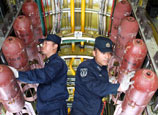
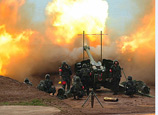




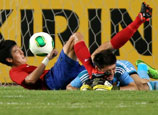

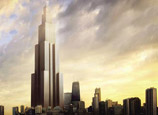
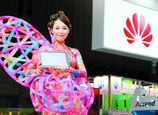






 Dog survives after 30 hours buried in debris
Dog survives after 30 hours buried in debris


![]()
